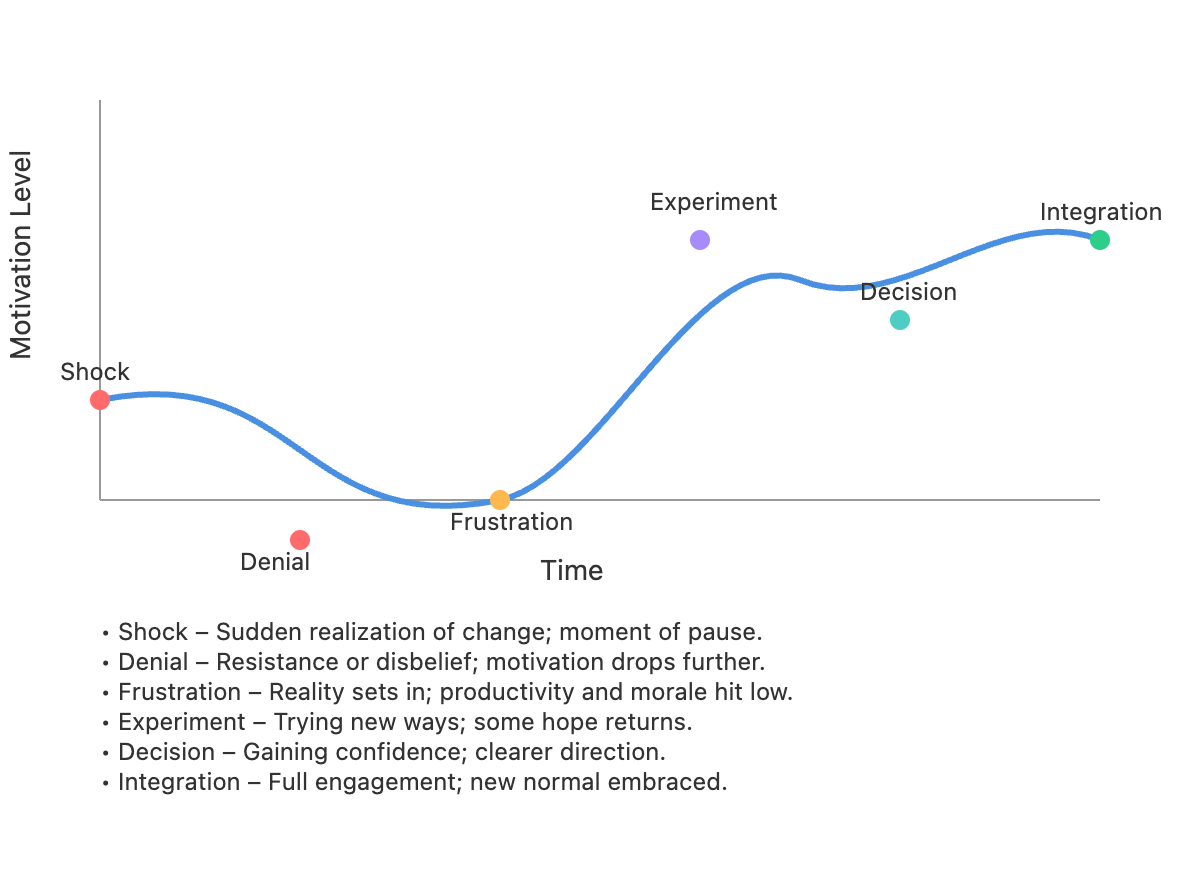In this unit, we will explore how to effectively navigate the emotional landscape of loss during organizational change. Change often brings about feelings of loss, whether it's the loss of stability, roles, or familiar processes. Understanding and addressing these feelings is crucial for maintaining team morale and guiding your team through transitions effectively.
Loss during change can manifest in various ways, such as anxiety over job security or sadness over the departure of colleagues. It's important to recognize these emotions and their impact on your team.
The Kübler-Ross Change Curve is a useful model for understanding the emotional journey individuals experience during change. It outlines stages such as denial, anger, bargaining, depression, and acceptance. Recognizing where team members are on this curve can help you tailor your support and communication strategies.
For example, if a team member is in the denial stage, they may need more information and clarity about the change. By aligning your approach with the Change Curve, you can more effectively guide your team through the emotional impact of change.

Sharing your own experiences with loss can be a powerful way to connect with your team. By opening up about a time you faced significant change and how you managed the emotional impact, you demonstrate empathy and resilience.
Let's explore a dialogue between two colleagues to see how to navigate feelings of loss during change.
- Jessica: I'm really struggling with the recent changes. It feels like everything I knew is gone.
- Ryan: I understand, Jessica. It's tough when things shift so suddenly. I went through something similar last year.
- Jessica: Really? How did you handle it?
- Ryan: I focused on the new opportunities it brought. It was hard at first, but I learned new skills and grew a lot.
- Jessica: That sounds encouraging. Maybe I can find some positives in this too.
- Ryan: Absolutely. Let's look at what new roles or projects might interest you. I'm here to support you through this.
In this dialogue, Ryan demonstrates empathy by sharing his own experience and offering support, helping Jessica see the potential for growth amidst change.
As a leader, your role is to guide your team through loss while maintaining morale. This involves addressing concerns, providing clear communication, and motivating your team to focus on future possibilities. You might encourage them to view the change as a chance to develop new skills and contribute in different ways. By fostering a positive outlook, you help your team stay engaged and resilient during transitions.
By understanding and addressing the emotional aspects of loss, you can lead your team through change with empathy and confidence. This approach not only supports individual team members but also strengthens the overall team dynamic, paving the way for successful adaptation and growth.
In the upcoming practices, you'll have the opportunity to practice these concepts and guide a team member through the emotional impact of change.
